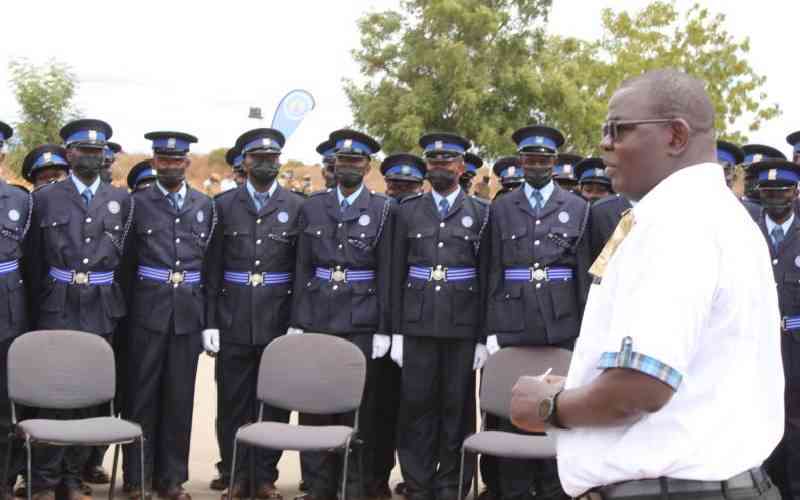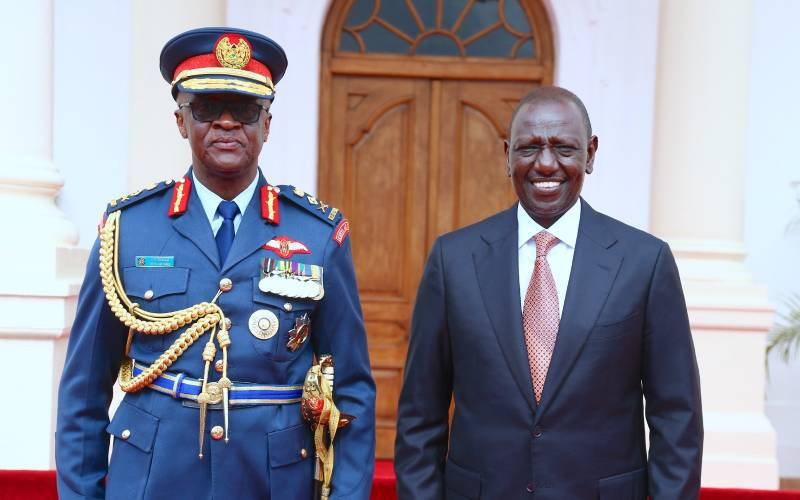Learned helplessness is when a person begins to believe they have no control over a situation, even when they do. The mantra of the person who suffers from learned helplessness is: "What's the point in trying?"
Learned helplessness was studied in 1965 by psychologist Martin Seligman while he was studying the behaviour of dogs. In the experiment, designed to be a variation of Pavlov's famous "classical conditioning" experiment, Seligman restrained the dogs for some time in a hammock.
Every time a sound was heard, the dog would receive an electrical shock. Later, the dogs were put in a confined box which they could easily jump out of. Seligman wanted to see if the dogs would have learned to jump out of the box when they heard the sound to escape the shocks. What surprised him was that the dogs just lay there and did not try to escape.
What Seligman had discovered was that the dogs had "learned" from the early part of the experiment that the shocks occurred at random, were unavoidable and didn't depend on their own behaviour. The dogs could, in fact, just jump out of the box to escape the shock but they had learned otherwise.
This kind of behaviour pattern is what we Kenyans have been exhibiting lately. Having been exposed to sustained slaughter and decapitation apparently at will by terrorists, we have somewhat come to accept that these things are unavoidable. A feeling of utter helplessness has overcome us.
Former Interior Cabinet Secretary Joseph Ole Lenku, by a flawless example of classical conditioning, taught us that he was capable of nothing. We were to expect nothing from him but were required to live with that. Even his most fervent defenders were eventually shaken. Ditto (David) Kimaiyo. No need flogging dead donkeys.
Thankfully, Mr Kimaiyo offered to resign for 'personal' reasons which conveniently became overwhelming the morning after more Kenyans were butchered at a quarry in Mandera. The President (at last) moved to replace Mr Lenku. The two ex-public servants had collectively instilled in us a sense of hopelessness.
Learned Helplessness has led us to falsely believe that we are more powerless than we really are. Indeed, no less than Mr Uhuru Kenyatta, the president, is on record as telling us that insecurity is our fault. We feel that there is nothing we can do.
This in turn is leading us to overlook opportunities for relief and change. It is not true that an entire country with disciplined security forces can be held at ransom by a few marauding bandits hiding in the chaparral. The failure is one at the very top since Lenku and Kimaiyo were lost at sea, but their captain kept insisting that they knew what they are doing. Pray, why did the President not act on these two in good time?
By sending home the two, the President acknowledged what Kenyans were saying, and gave a tacit indictment of his own character assessment prowess. It is not inconceivable that many of those slain would be alive today had the Head of State taken decisive action when it became clear the security docket was smouldering. Regrettably, he chose to wait for a blazing inferno before his belated corrective action.
We need not live in fear and anger. Instead, we need to direct these emotions to spur our elected representatives into action. Action like demanding to be told what our end game in Somalia is, unless of course our engagement there is dependent on charcoal reserves.
Our fate is in our hands. Yet come the next election, we must ask ourselves hard questions. It was our decision that put Uhuru Kenyatta at the helm. Now we find ourselves in rough seas. Alas! The erstwhile captain has gone as far as saying that the buck stops with us, not him. We indeed do get the leaders we deserve.
 The Standard Group Plc is a
multi-media organization with investments in media platforms spanning newspaper
print operations, television, radio broadcasting, digital and online services. The
Standard Group is recognized as a leading multi-media house in Kenya with a key
influence in matters of national and international interest.
The Standard Group Plc is a
multi-media organization with investments in media platforms spanning newspaper
print operations, television, radio broadcasting, digital and online services. The
Standard Group is recognized as a leading multi-media house in Kenya with a key
influence in matters of national and international interest.
 The Standard Group Plc is a
multi-media organization with investments in media platforms spanning newspaper
print operations, television, radio broadcasting, digital and online services. The
Standard Group is recognized as a leading multi-media house in Kenya with a key
influence in matters of national and international interest.
The Standard Group Plc is a
multi-media organization with investments in media platforms spanning newspaper
print operations, television, radio broadcasting, digital and online services. The
Standard Group is recognized as a leading multi-media house in Kenya with a key
influence in matters of national and international interest.








